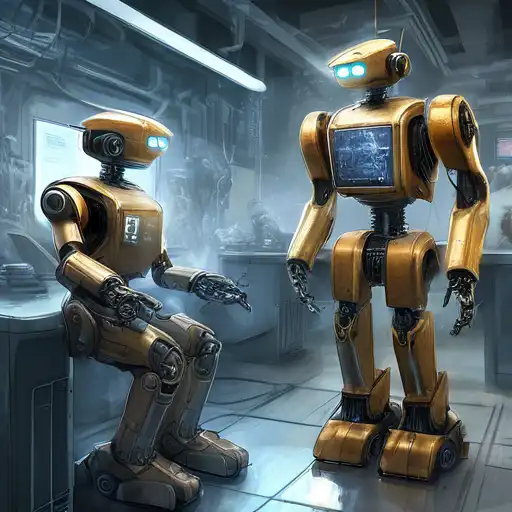The Moral Dilemmas of Autonomous Robots
In the rapidly evolving world of technology, autonomous robots represent a pinnacle of human achievement. However, as these machines become more integrated into our daily lives, the ethical implications of their actions and decisions come under scrutiny. This article explores the complex moral landscape surrounding self-operating machines, offering insights into how society might navigate these uncharted waters.
Understanding Autonomous Robots
Autonomous robots are machines capable of performing tasks without human intervention, relying on artificial intelligence (AI) to make decisions. From self-driving cars to robotic surgeons, these technologies promise to revolutionize industries. Yet, with great power comes great responsibility, and the ethical considerations are vast.
Key Ethical Concerns
The deployment of autonomous robots raises several ethical questions, including:
- Accountability: Who is responsible when an autonomous robot makes a mistake?
- Privacy: How do we protect individual privacy in an age of pervasive surveillance robots?
- Employment: What is the impact on jobs as robots take over tasks traditionally performed by humans?
- Safety: How can we ensure that autonomous robots do not harm humans or other sentient beings?
Machine Ethics: A New Frontier
Machine ethics is an emerging field that seeks to embed moral decision-making capabilities into robots. By programming ethical frameworks, developers aim to ensure that robots make decisions that align with human values. However, this raises further questions about whose morals are programmed into these machines and how universal ethical standards can be achieved.
The Future of Autonomous Robots
As technology advances, the line between human and machine decision-making blurs. The future of autonomous robots depends on our ability to address these ethical concerns head-on, ensuring that these technologies benefit humanity as a whole. For more insights into the future of technology, explore our future technology section.
Conclusion
The ethics of autonomous robots is a complex and multifaceted issue that requires careful consideration from all stakeholders. By fostering open dialogue and collaboration, we can navigate the moral landscape of self-operating machines, ensuring a future where technology serves the greater good. For further reading on artificial intelligence and its implications, visit our AI section.
